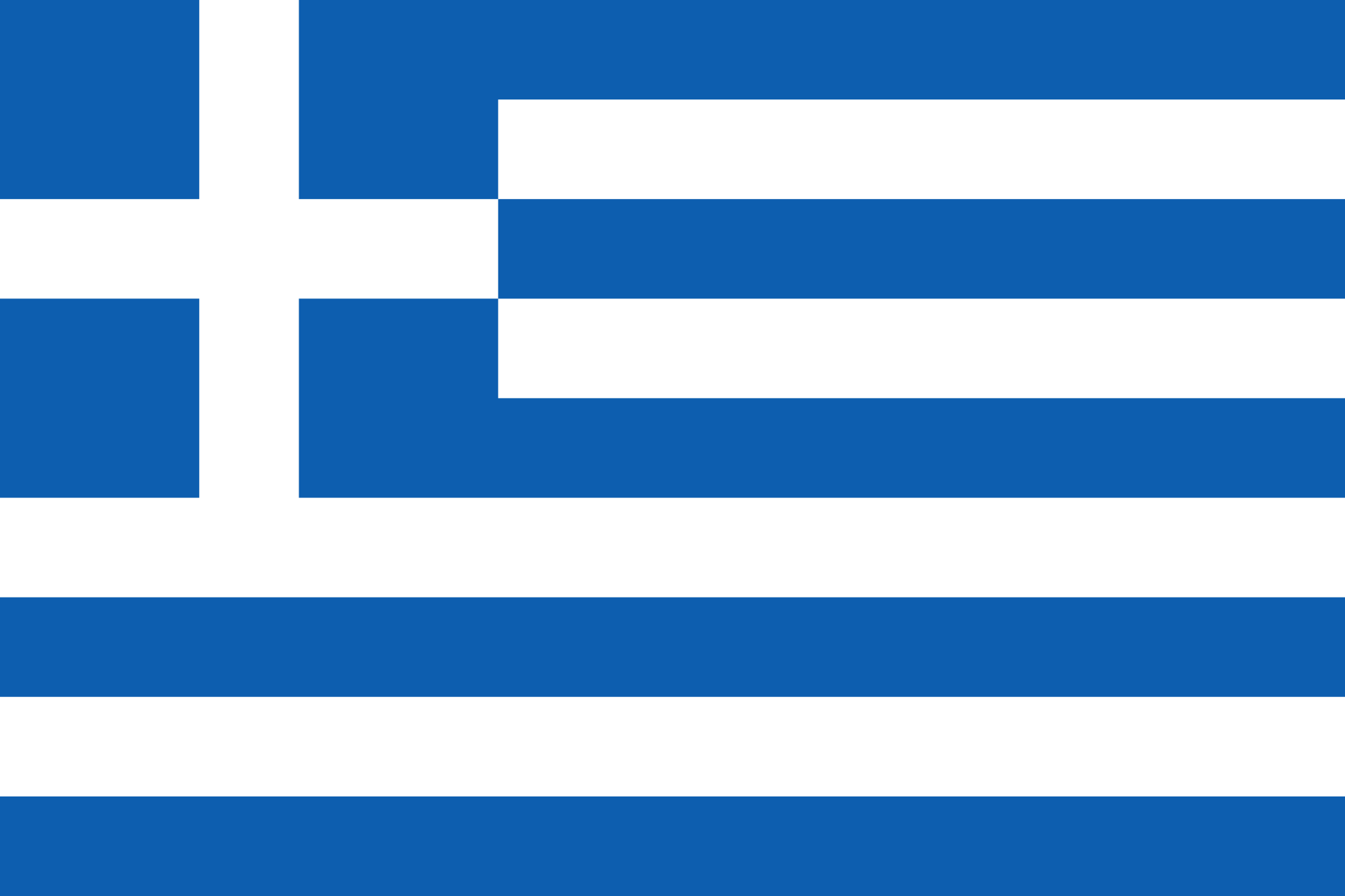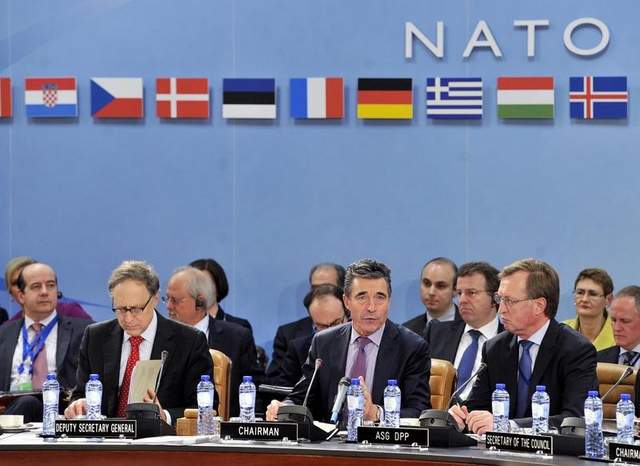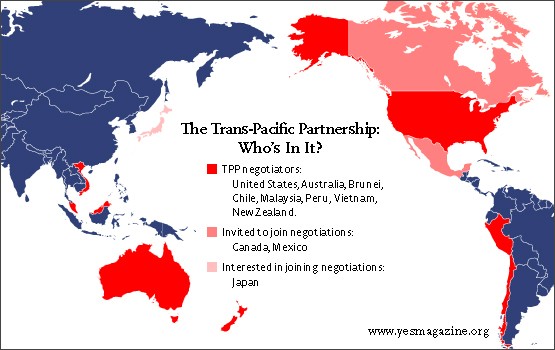
The Trans Pacific Partnership (TPP) is the largest trade deal in history currently being negotiated by 12 countries: Canada, Australia, Brunei, Chile, Japan, Malaysia, Mexico, New Zealand, Peru, Singapore, the United States and Vietnam. These countries represent 792 million people and a combined GDP of $27.5 trillion, which accounts for 40 percent of the world economy according to the Office of the United States Trade Representative. The TPP intends to enhance trade and investment among the TPP partner countries, promote innovation, economic growth and development, and support the creation and retention of jobs. Like the majority of international trade deals, the talks are not open to the public and as a result many are concerned about the overwhelming secrecy around this trade deal.
The TPP has received considerable criticism from various sources including global health professionals, internet freedom activists, organized labour, academics, and elected officials. The main areas of criticism included the partnership’s stance on intellectual property rights, agriculture, and human rights.
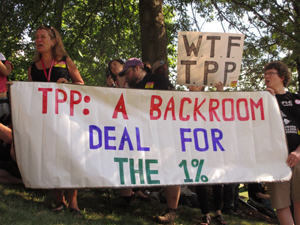
On November 13, 2013, WikiLeaks released a draft of the TPP that highlights increased intellectual property rights to the point where civil liberties could be legally violated by internet providers. Critics also argue this is a move to provide higher profits for the big pharmaceutical companies. Noam Chomsky states that increased intellectual rights are, in theory, supposed to protect major research and development as well as profit, but the reality is quite different. He affirms that most research and development in the pharmaceutical industry originates from the public sector and is then fed into the private pharmaceutical companies, which implies that increasing intellectual property rights serves to increase pharmaceutical companies’ profits and has little impact on the real research and development done in the public sector.
Critics of TPP’s agricultural policy state that its effects on local farmers will be detrimental. The effects were compared to those of the 1994 North American Free Trade Agreement (NAFTA) on Mexico. Critical analysis of NAFTA showed that it was designed to undermine local farmers by introducing low-cost food products with which locals will not be able to compete. Due to the highly subsidised nature of the US agricultural sector, the US can afford to export at such low prices and drive out local producers. The TPP is said to likely have the same effect on the less developed members of the trade deal.
Noam Chomsky argues that the TPP is a purely protectionist measure in order to safeguard corporate profits. He introduces the theory of ‘kicking away the ladder’ which states that countries will consciously violate trade laws for economic benefit and once the economy is well developed, they will ban the same violations for other nations, thus slowing growth. Chomsky’s critique is mainly focused around protectionism of the US economy and further exploitation of the Pacific region economies.
Joseph E. Stiglitz also criticised the TPP stating that it will put us on the “wrong side of globalisation.” Stiglitz claims that from the leaked drafts of the agreement, it is likely that it will only benefit the wealthiest individuals of the most developed country at the expense of lower and middle class individuals. He further explains that the TPP is aiming to altogether remove tariffs that are essential to each nation’s development since they protect strategic industries. Stiglitz also criticises TPP’s “race to the bottom” of regulation stating that without any regulation firms will create a risk of large amounts of negative social externalities. These externalities would largely take the form of environmental pollution, human rights violations, and shrinking the size of the labour market.
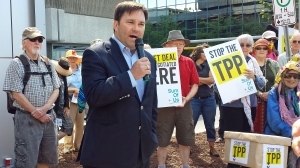
On July 10, 2014 Canadian New Democratic Party (NDP) MP Don Davies publicly denounced the TPP negotiations for being too secretive and called for greater transparency in the process. “The TPP is billed as a next-generation agreement that will profoundly affect Canada’s economy, our social policy and our international standing. Yet the Conservative government is conducting it with absolute secrecy,” Davies said. Davies further explained that the TPP stands against ‘Canadian values’ – mainly human rights. The MP argued that the TPP involves countries that are not democratic, have forced labour, child labour, and countries that suppress political dissidents. According to Davies, this is unacceptable, goes against Canadian values and does not conform to minimum international standards. Davies said “I expect the Canadian government to be speaking publicly and strongly about these [minimum international standards] because we think trade policy should be used to raise these kinds of standards and it should be a condition of participation” and he also sent a letter to the Trade Minister Ed Fast with these concerns.
The NDP MP’s statements might have caused delays in the negotiation process, but the effect that the TPP will have on the Canadian economy is uncertain. In fact, much of the criticism surrounding the TPP originates from leaked documents which could be outdated or falsified. As a result, criticisms are slightly undermined by a problem of legitimacy. However, the secretive process creates doubt in the public’s eyes as to the motives and means by which the TPP will operate. The general consensus in non-mainstream media seems to be that since the TPP is so secretive it must be hiding something controversial. It may equally be that these trade negotiations are simply off-limits to the public in order to increase the possibility of success and create a better environment for the negotiations is uncertain.


